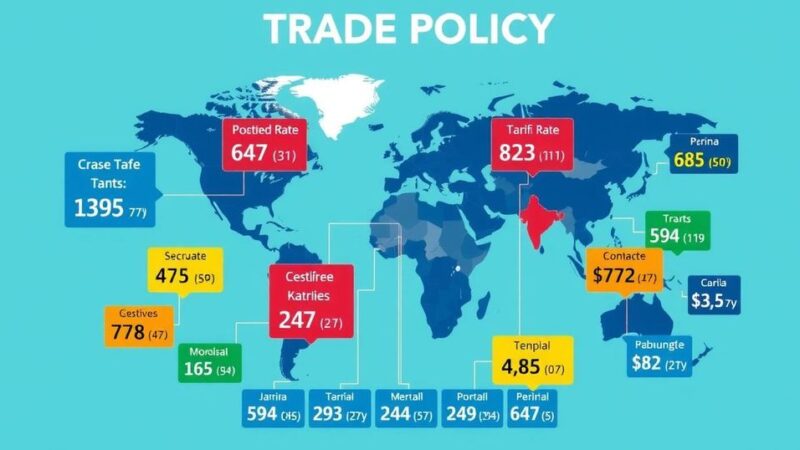Nauru, once the wealthiest nation, now struggles with poverty affecting 25% of its population. This decline is linked to the collapse of its phosphate industry, inadequate healthcare, and food insecurity. Australia plays a crucial role in supporting Nauru’s development, focusing on education and infrastructure for recovery and sustainability.
Nauru, a small Pacific island nation with just over 12,000 residents, was once regarded as the wealthiest nation in the world. However, due to a significant decline in its phosphate mining industry, the country now struggles with a low gross domestic product (GDP) per capita of $10,000 to $12,000. Approximately 25% of the population lives below the basic needs poverty line, resulting in the poorest human development indicators in the region.
The 2006 Household Income and Expenditure Survey indicated that poverty in Nauru correlates with inadequate opportunities for full socioeconomic participation and insufficient resources for households and communities. The limited availability of social services leads to difficulties in accessing essential resources such as healthcare and education, compounding the challenges faced by those living in poverty.
Following its independence from Australia in 1968, Nauru experienced wealth due to its phosphate industry, yielding extensive benefits from universal health and education systems. However, mismanagement and overreliance on phosphate revenue precipitated a collapse of these services by 1990, dragging the nation into a severe socioeconomic crisis. Efforts to sell banking licenses only worsened the situation, with the U.S. Treasury labeling Nauru a “money-laundering state” in 2002.
The health care system in Nauru is currently regarded as inadequate, lacking sufficient staffing and resources. Despite significant Australian investment, medical treatment often necessitates travel abroad, as local hospitals are labeled “substandard, poorly staffed and ill-equipped” by professionals. Many patients are denied transfers to Australian facilities, exacerbating health issues and leading to tragic outcomes.
Food poverty is a critical concern, with malnutrition and obesity at alarming levels. The traditional Nauruan diet, characterized by seafood and vegetables, has shifted towards imported, processed foods following years of consumerism. This change has resulted in Nauru having the highest obesity and type 2 diabetes rates globally, with over 70% of the population classified as obese.
In a recent statement at the U.N. Food Systems Summit, Rennier Gadabu, Nauru’s minister for commerce, highlighted the need for collaboration to prevent food shortages and emphasized a commitment to enhancing agriculture for better food security and improved nutrition.
Education in Nauru is also facing challenges, notably high truancy rates leading to low literacy and numeracy among youth. The government has instituted the Nauru Education Assistance Trust Scheme (NEATS), providing trust funds for students who attend school, effectively incentivizing attendance. This initiative is reported to have successfully reduced truancy rates, as stressed by Nauru’s Minister for Education, Charmain Scotty, who remarked on the investments students make in their futures through consistent school attendance.
Australia continues to play a pivotal role in Nauru’s development, committing $32 million in official development assistance in 2022-23, with plans for $46 million in 2023-24. This financial support aims to enhance public sector management, infrastructure, and human development across health and education. Additionally, the upcoming Raña Tsimorum program aims to strengthen the health system and improve health outcomes for Nauruans, focusing on efficient delivery and public health interventions.
Future initiatives will prioritize governance, resource allocation, and economic diversification through the Nauru-Australia Partnership on Economic Governance. Australia has reaffirmed its long-term commitment to Nauru’s financial health, with the goal of fostering sustainable development that can help the nation recover from its current state of poverty and restore its previously prosperous lifestyle.
In summary, Nauru faces significant challenges stemming from its historical dependency on phosphate mining, resulting in widespread poverty, inadequate healthcare, and poor nutrition. The government has implemented initiatives such as NEATS to address education and truancy, while Australia’s ongoing support aims to bolster Nauru’s infrastructure and health systems. Enhancing agriculture and diversifying the economy are essential steps for overcoming these challenges and achieving sustainable growth.
Original Source: borgenproject.org






